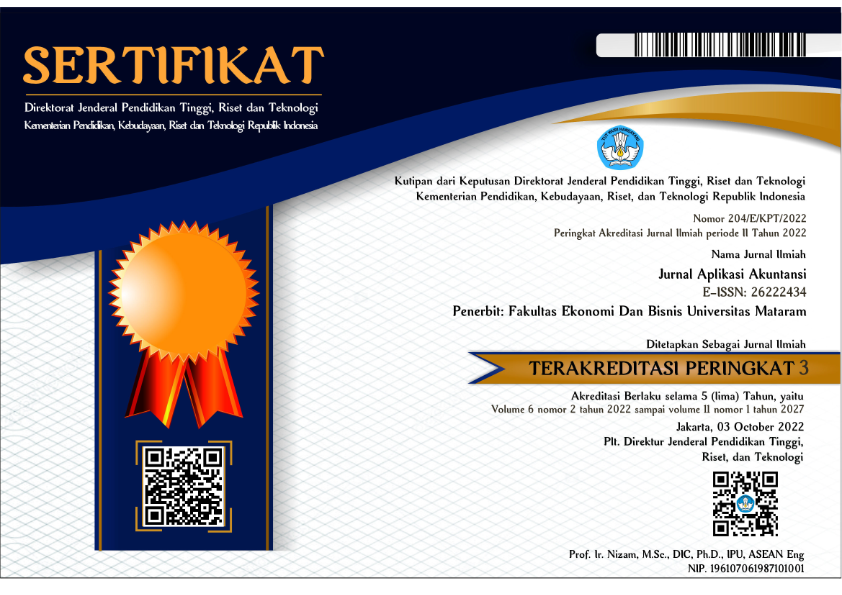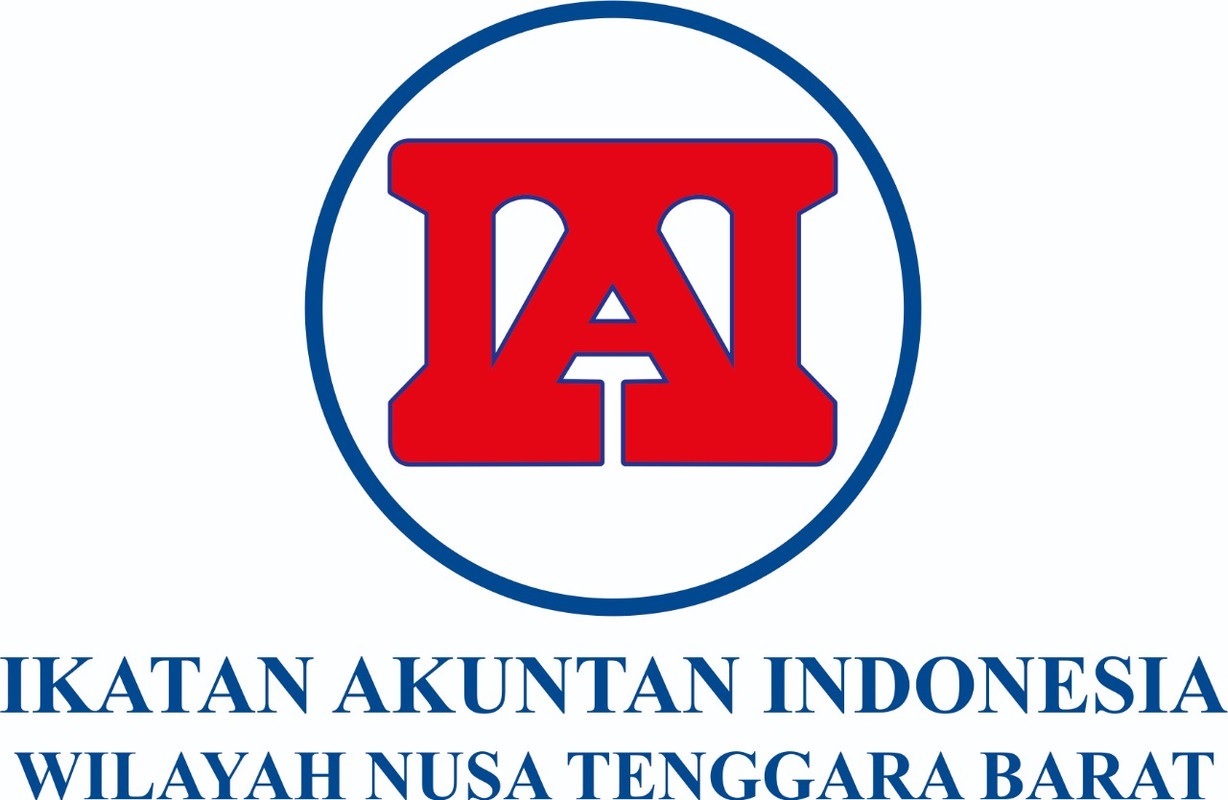PENGARUH SIFAT KEPRIBADIAN LOCUS OF CONTROL DAN SELF-EFFICACY PADA PEMAHAMAN AKUNTANSI
DOI:
https://doi.org/10.29303/jaa.v3i2.39Keywords:
Internal Locus of Control, External Locus of Control, Self Efficacy, Understanding of AccountingAbstract
Education is a conscious and planned effort to create a learning atmosphere and learning process so that students actively develop spiritual strength, self-control, personality, intelligence, noble character, and skills needed by themselve, and society. Good competence is one aspect that can improve student learning outcomes. Student competency is not the same as those of other student. Competency can be formed from outside or from within the individual itself. Family support, environment, and the condition of facilities and infrastructure is one factor that give a big impact to persons competencies. A person's behavior will be characterized by the nature of his personality. Locus of control and self-efficacy are two traits that able to change a person's behavior into one action or effort to carry out the learning process. The respondents of this study were Accounting students of Warmadewa University which already passed the 7th semester. Data were collected by questionnaire technique. This research used multiple linear regression analysis to analyze the data. The results showed that internal locus of control and self-efficacy have a positive and significant effect while external locus of control has a positive but not significant effect in the accounting section.
Keywords: Internal Locus of Control, External Locus of Control, Self Efficacy, and Understanding of Accounting
References
Feist, Jess dan Feist, Gregory J. 2009. Theories of Personality. Amerika Serikat: McGraw Hill.
Ghozali, Imam. 2009. Aplikasi Analisis Multivariate dengan Program SPSS. Edisi Kedua. Semarang: Universitas Diponegoro.
Hariyoga, S. dan Edi, S. 2011. Pengaruh Kecerdasan Emosional, Perilaku Relajar, dan Budaya Terhadap Tingkat Pemahaman Akuntansi Dengan Kepercayaan Diri sebagai Variable Pemoderasi. Simposium Nasional Akuntansi XIV. Banda Aceh, 20-23 Juli 2011.
Mawardi, M.C. 2011. Tingkat Pemahaman Mahasiswa Akuntansi Terhadap Konsep Dasar Akuntansi di Perguruan Tinggi di Kota Malang. Jurnal Ekonomi dan Bisnis Islam, Vol. 8: 1-19.
Melandy, Rissyo dan Nurma Aziza. (2006). Pengaruh Kecerdasan Emosional terhadap Tingkat Pemahaman Akuntansi, Kepercayaan Diri Sebagai Variabel Pemoderasi. Simposium Nasional Akuntansi IX. Padang, 23-26 Agustus 2006.
Menezes, A. A. 2008. �Analisis Dampak Locus Of Control Terhadap Kinerja dan Kepuasan Kerja Internal Auditor� (tesis). Semarang: Universitas Diponegoro.
Oyler, J. D. 2007. �Core Self-Evaluations and Job Satisfaction: The Role of Organizational and Community Embeddedness�, (disertasi). Virginia: Virginia Polytechnic Institute and State University.
Parent, J., Forward, J., Carter, R,. dan Mohling, J. 1975. Interactive Effects of Teaching Strategy and Personal Locus of Control on Student Performance and Satisfaction. Journal of Education Psychology, Vol. 67: 764-769.
Pasek, Nyoman S. 2016. Pengaruh Kecerdasan Intelektual pada Pemahaman Akuntansi dengan Kecerdasan Emosi dan Kecerdasan Spiritual sebagai Variabel Pemoderasi. Jurnal Ilmiah Akuntansi, Vol. 1: 1-11.
Robbins, S. P. 2001. Perilaku Organisasi. Jakarta: Salemba Empat.
Rotter, J. B. 1966. Generalized Expectancies For Internal Versus External Control of Reinforcement. Psychological Monographs: General and Applied, Vol. 80: 1-28.
Siswanto, E.N.N. dan Sapuwan, Sanusi. 2006. Perancangan Penilaian Kinerja Karyawan Berdasarkan Kompetensi Spencer dengan Metode Analytical Hierarchy Process (Studi Kasus di Sub Dinas Pengairan, Dinas Pekerjaan Umum, Kota Probolinggo). Jurnal Teknik Industri, Vol 8: 40-53.
Spector, P. E. 1988. Development of the Work Locus of Control Scale. Journal Occupational Psychology, Vol. 61: 335-340.
Suwardjono. 2005. Teori Akuntansi: Perekayasaan Pelaporan Keuangan. Yogyakarta: BPFE.
Tjandra, R. 2007. �Computer Anxiety dari Perspektif Gender dan Pengaruhnya Terhadap Keahlian Pemakai Komputer dengan Variabel Moderasi Locus of Control Studi Empiris Pada Novice Accountant Assistant di Akademi Akuntansi YKPN Yogyakarta� (tesis). Semarang: Universitas Diponegoro.
Undang-Undang Republik Indonesia Nomor 20 Tahun 2003 tentang Sistem Pendidikan Nasional. 8 Juli 2003. Lembaran Negara Republik Indonesia Tahun 2003 Nomor 4301. Jakarta.
Wood, R. dan Bandura, A. 1989. Social Cognitive Theory of Organizational Management. Academy of Management Review, Vol. 14: 361-384.









